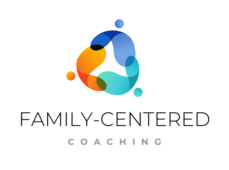When a participant or one of their family members is in crisis, it is very difficult to work on or even think about setting goals. Case management is a time to work directly on a family’s immediate needs. In many social services organizations, case management is the default approach to working with families. It can often be transactional, such as determining eligibility, enrolling participants in programs, or providing referrals. Staff usually drive the process by identifying and coordinating services from both inside and outside their agency.
Case management is helpful when staff are responsive to participants, follow through on referrals, and help families get the support they need quickly and efficiently.
Case management can be unhelpful when staff take a paternalistic or punitive approach, when expectations are unclear, and when processes are duplicative and complex. Families working with case managers sometimes express feeling a lack of respect, being looked down on, or feeling bad about asking for help.
In case management, the coach is frequently the driver–determining timelines and providing services within the constraints of the organization and referral partners. However, these tasks can still be done with a coaching mindset by calling on the strengths and capabilities of families.
Use these tips to apply a Family-Centered Coaching mindset to case management:
- Ask the participant if you can switch to a case management approach.
- Ask the participant if you can share information or specific resources about the issue they are experiencing. The participant decides if and when they are ready to receive that information.
- Check your own assumptions by asking, “Am I understanding that correctly?” or “What am I missing?”
- Discuss options together to ensure the participant makes the decision about which option to pursue.
An example of applying a coaching mindset to case management: In a coaching session, a participant and coach are discussing the participant’s goal to help their teenager to enroll in college, when the participant brings up a health crisis they are experiencing. The coach asks the participant if they can switch to a case-management approach and the participant agrees. The coach asks if they can share resources about treatment options. The participant is hesitant because they are worried about paying for the health services. The coach offers to provide resources on health insurance options and the participant agrees. The coach reflects back the information they heard from the participant and asks “What am I missing?” The participant and coach discuss the participant’s options and decide to schedule an appointment to determine health insurance eligibility.
The Prosperity Agenda provides these resources as the designated national administrator of Family-Centered Coaching.

